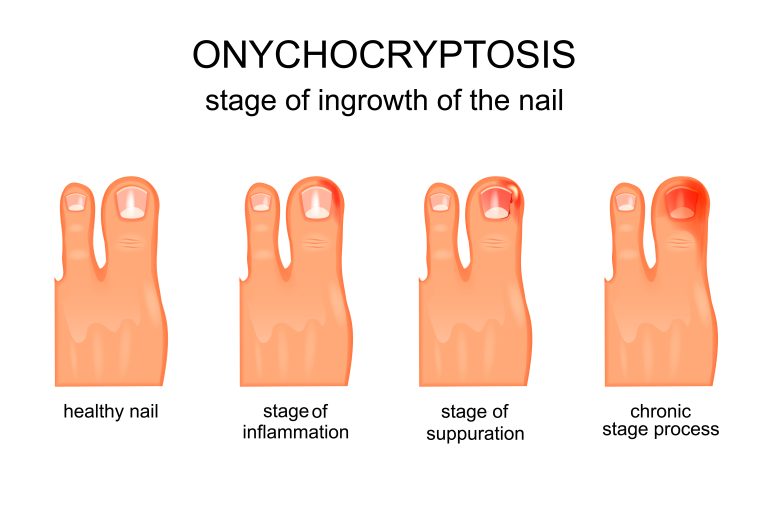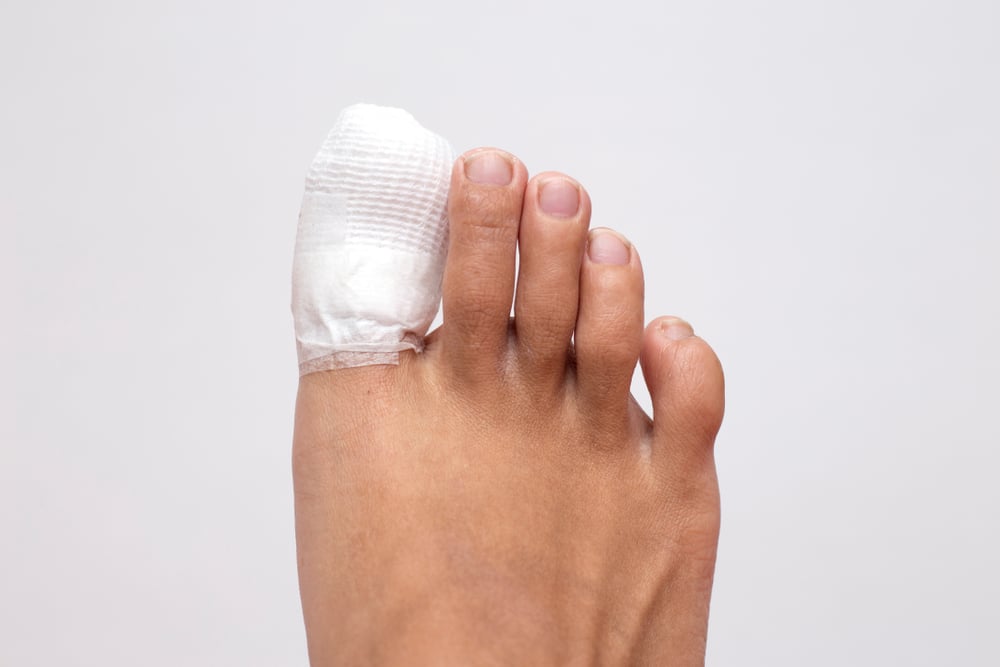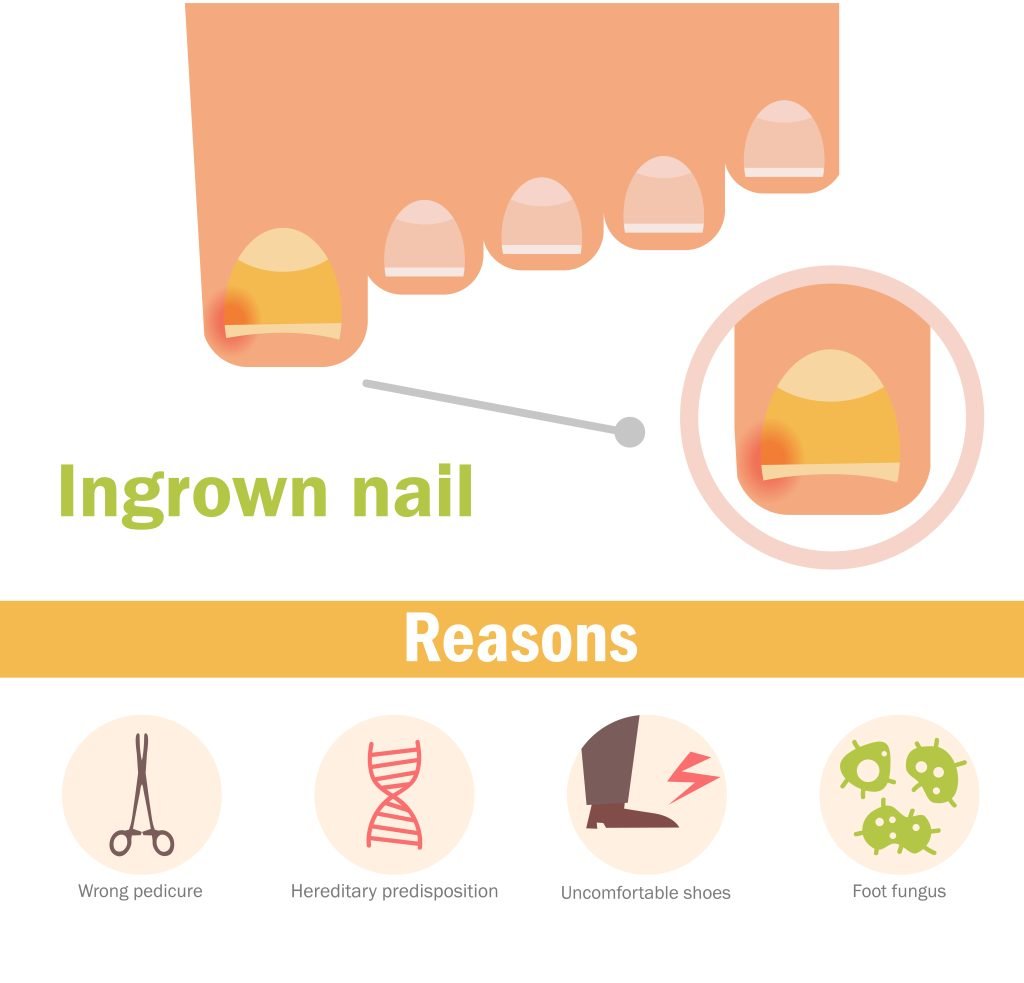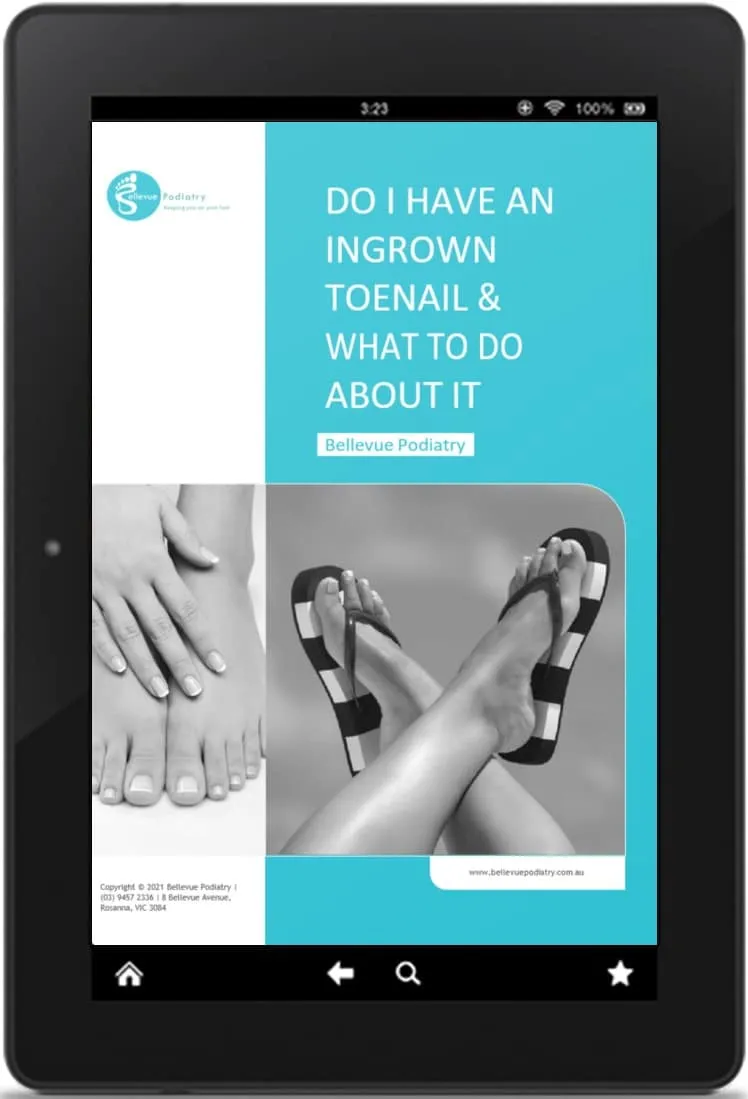You may have heard of wedge resection toe nail and nail avulsion procedures for ingrown toenails. But do you know what makes them different?
Both are surgeries that can fix the frustrating and often painful problem of ingrown toenails, but they are not the same in how they work, how much of the nail is removed, how to stop it from growing back, or how long it takes to recover.
If you know about these differences, you can make better informed decisions about the health of your feet. Let’s get down to business and look at these two types of ingrown toenail surgery in more detail.
Understanding Ingrown Toenails
So, what do ingrown toenails really mean? When the toenail starts to grow into the skin around it, it’s a common foot problem that can lead to pain and infection. This condition is usually caused by cutting your nails wrong or wearing shoes that are too tight.
If this happens, you might want to get rid of the ingrown toenail. There are several ways to do this, such as wedge resection toe nail or nail avulsion.
A wedge resection involves cutting out the part of your toenail that is giving you trouble. This method goes straight to the source of the pain and infection and relieves it right away.

A Nail Avulsion Is Required In Certain Situations
But there are times when a more thorough approach is needed. That’s when ingrown surgery, like nail avulsion, comes in handy. In this case, we remove the whole nail to make it less likely that it will happen again.
After surgery, it’s important to follow the recovery steps that were given to you. These usually include keeping the wound dry, elevating your foot, and not doing anything too strenuous for a couple of weeks. By following these tips, you can make it less likely that your ingrown toenail will come back.
Benefits and Drawbacks of Surgery Treatments
This article has explained wedge resection toe nail and nail avulsion procedures. Let’s look at their pros and cons to help you decide which one might be better for you.
With wedge resection, only the problematic part of the nail is cut away, leaving most of your natural nail. It may take longer for the nail to grow back, though, anywhere from two weeks to two months. However, there is still a chance that it will happen again, especially if the cause of the ingrown toenail is not fixed.
Nail avulsion, on the other hand, is a more permanent fix. By cutting off the whole nail, the chances of it growing back are lower. And the pain usually goes away in a few days. On the other hand, you’ll be without a toenail for a while, which some people might find strange.

Your podiatrist will guide you how to choose between the two procedures based on how bad your ingrown toenail is, how comfortable you are with the healing process, and your own personal preference.
Remember that you should always talk to your podiatrist about these things in order to choose the best surgical option for you.
Wedge Re-section Toe nail: A Closer Look
Let’s talk about the specifics of a wedge resection toe nail procedure, which removes only the part of your nail that is giving you trouble. This procedure is meant to ease the pain and treat infections that are caused by an ingrown toenail.
To help you understand this process better, here are some important facts:
- The procedure involves surgically cutting away the ingrown portion of the nail.
- If there's an existing infection in the affected area, surgical drainage is typically included.
- The regrowth time can range from 2 weeks to 2 months, depending on your body's healing capabilities.
- Lateral onychoplasty, a specific type of wedge resection, has shown high success rates in dealing with ingrown toenail issues.
- Sometimes, wedge resection is used in conjunction with complete nail avulsion with phenol to prevent recurrence by destroying the nail matrix.
Nail Avulsion: The Complete Solution
Now that you know how wedge resection works, it’s important to know how nail avulsion works to treat ingrown toenails completely. With nail avulsion, the whole toenail is cut off, but with wedge resection, it is only partially cut off. This surgery, which is done while the patient is asleep, guarantees that the whole nail will be removed, giving a more complete solution.
Even though nail avulsion is a thorough treatment, it’s important to know that the nail may grow back. After avulsion, there may be more problems with ingrowth. This problem can be fixed with extra treatments like phenolization, which coats the nail matrix with phenol to stop new growth and lower the chances of it happening again.
When you have a nail avulsion, you usually heal quickly. Any pain you’re feeling should go away in a few days after surgery. This procedure is more invasive than wedge resection, but it works well to treat severe or recurring ingrown toenails.
As with any medical procedure, you should talk to a podiatrist to find out what the best treatment is for you.

Comparing Wedge Resection and Nail Avulsion
If you look at wedge resection and nail avulsion side by side, you can see that they treat ingrown toenails in very different ways. The main difference is how much of the nail is removed. Depending on your condition, one of these ways might work better for you.
To help you understand better, here are some important points:
- Wedge resection targets only the ingrown portion of the toenail. Nail avulsion, on the other hand, removes the entire nail.
- The approach to preventing nail regrowth also differs. Wedge resection may involve the application of phenol while nail avulsion provides a thorough solution by removing the nail matrix.
- Recovery time varies per procedure. Wedge resection could take anywhere from 2 weeks to 2 months, while discomfort from nail avulsion generally fades within a few days.
- Wedge resection is typically recommended for less severe cases, while nail avulsion is utilized for more complex or recurrent issues.
In Closing...
In wrapping up, imagine the difference between wedge resection and nail avulsion like pruning a tree versus chopping it down.
Wedge resection delicately trims the problematic piece, preserving your nail’s essence. On the flip side, nail avulsion is a clean sweep, removing the whole nail for a fresh start.
Your choice hinges on your toenail’s condition and your patience for recovery. Remember, both routes lead to pain-free toes, so weigh your options carefully.
If you think you may have an ingrown toenail and want the right professional advice on how to treat it, we currently have a limited offer running to help you out. A GAP FREE ingrown toenail assessment consult (only $59 for those without extras private insurance).
Please feel free to book yourself in online or call our friendly Reception on (03) 8104 9270 today.
Ingrown Toenail Infection
Understand how you get ingrown toenails and what you can do to get rid of them once and for all. You don't need to put up with the pain of an ingrown toenail any longer.

